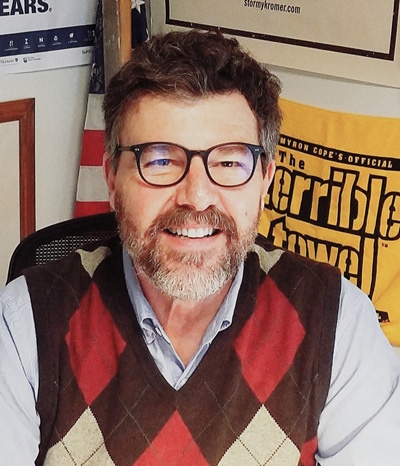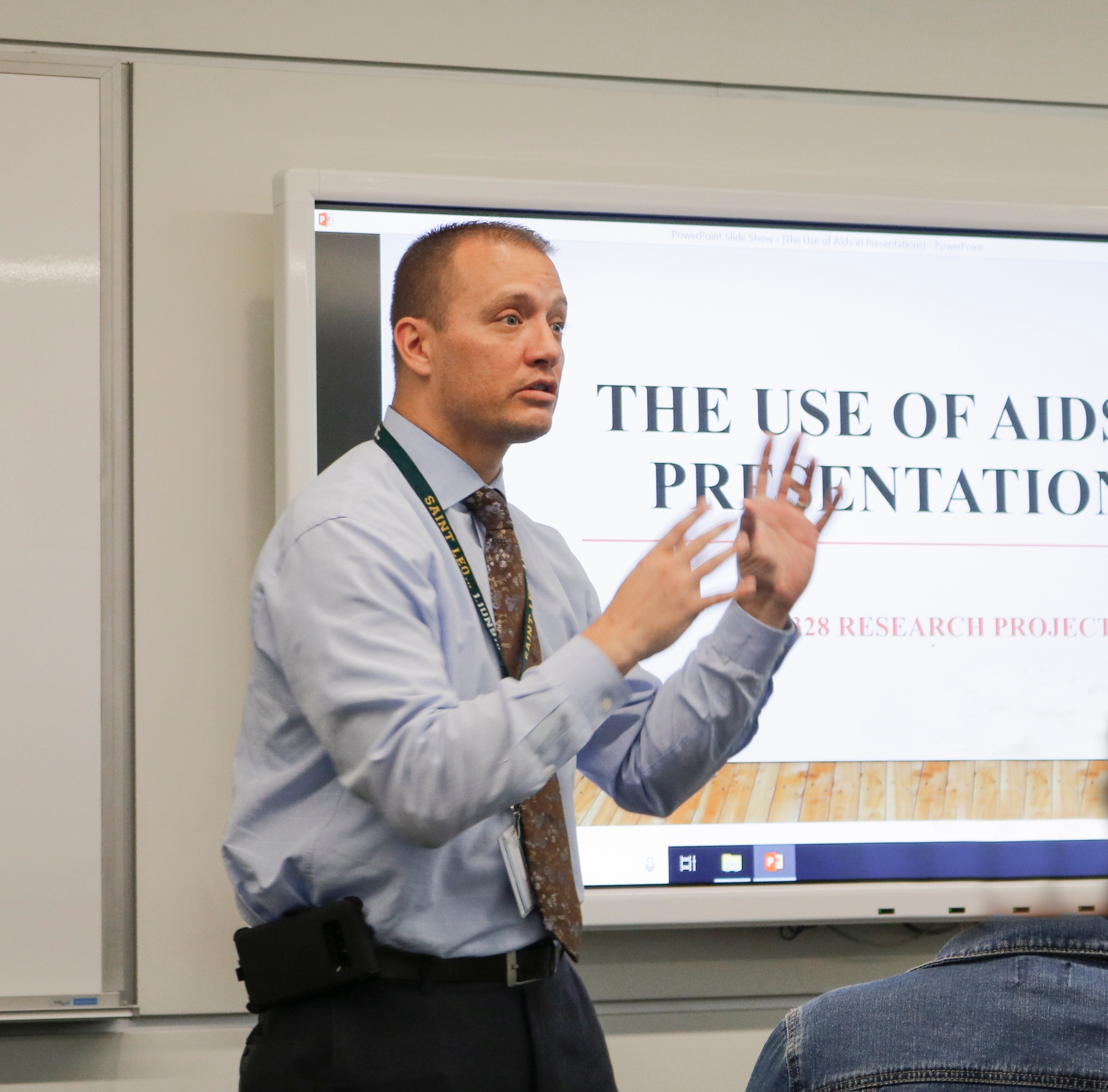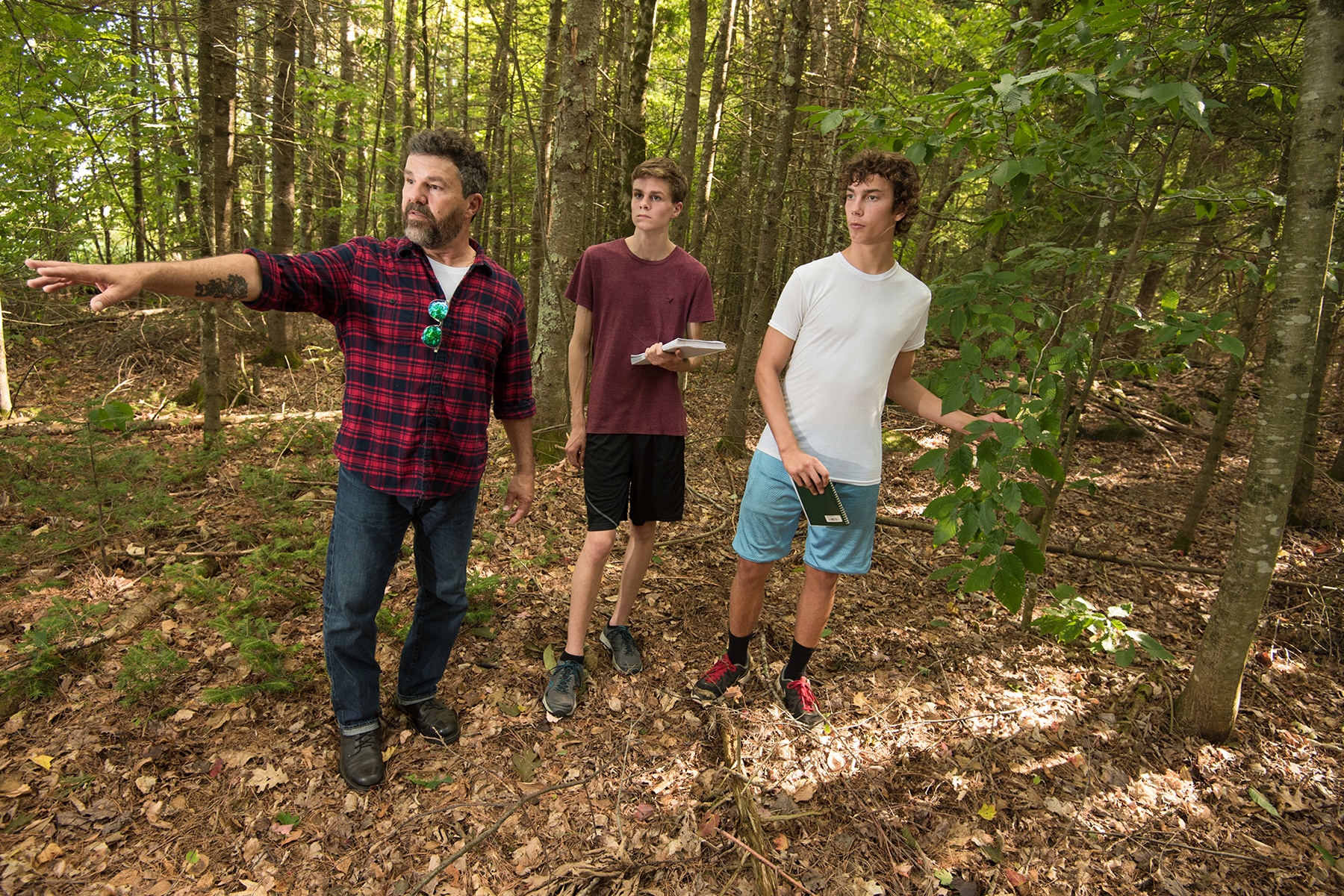This fall, Saint Leo University launched one of the few Doctor of Criminal Justice programs in the country. After offering associate through master's degrees in criminal justice for many years, the university is excited to now offer this unique doctoral program in a growing field.
The Basics on the DCJ Program
In this program, students learn the skills necessary to critically assess theoretical concepts, intervention modalities, public policy, and social order issues. They also become fully immersed in the broad range of criminal justice practices that impact law enforcement, corrections, the courts, and gain a greater knowledge of criminal justice by objectively studying the processes and procedures commonly used in this field.
The DCJ at Saint Leo is an online program, but there are three short residencies that are part of the curriculum to help students connect more closely with each other and the university community. The first residency is at University Campus in Saint Leo, Florida. The second is held at the Newport News, Virginia Education Office, and the third and final residency is at the Morrow, Georgia Education Center in the Atlanta area.
Two Curriculum Tracks
There are two curriculum tracks in this doctoral program. The program consists of 60 credit hours and typically takes three and a third years of coursework to complete.
The homeland security track is geared toward criminal justice practitioners who want to learn in-depth information about homeland security at the doctoral level and really want to focus on the academics of the curriculum. This track is generally intended for those seeking to advance their careers within the criminal justice field and become top experts on best practices and decision-making within a variety of professional settings at local, state, and federal levels.
The second track focuses on education and is intended for individuals who want to teach within graduate criminal justice programs.
From the Director's Vantage Point
Dr. Robert Diemer, the director of Saint Leo's DCJ program, is proud to oversee such a unique terminal degree offering.
"We are incredibly excited to offer this doctoral program, especially with all the hard work that went into making this a reality," Diemer says. "Saint Leo is thrilled to have so many talented and experienced criminal justice faculty members teaching within this dynamic curriculum, and many of them have already enjoyed serving as instructors in this high-level program."
What Students Are Saying
 Todd Hand, a retired law enforcement officer who served in Pasco County, Fla., earned a master's in criminal justice with a specialization in forensic psychology from Saint Leo. He worked as a graduate assistant for Barry Glover, who is considered an original architect of Saint Leo's criminal justice programs. He is now pursuing a DCJ.
Todd Hand, a retired law enforcement officer who served in Pasco County, Fla., earned a master's in criminal justice with a specialization in forensic psychology from Saint Leo. He worked as a graduate assistant for Barry Glover, who is considered an original architect of Saint Leo's criminal justice programs. He is now pursuing a DCJ.
"My goal has been to mirror the dedication and commitment to my profession and to students, which Professor Glover demonstrated," he says.
He says the instruction has been second-to-none.
"Saint Leo has procured the best of the best instructors for this degree program, which makes this experience even more challenging and rewarding. The exposure to various ways of defining problems, identifying solutions, and refining strategies is unique. The ability to work and learn from the faculty is a huge advantage to the learner."
Paying it forward is the primary reason Hand enrolled, and he believes this program is the perfect platform to allow him to do this for future criminal justice professionals.
"I feel that law enforcement professionals have a duty to keep giving back to the community in various ways, one being the mentoring and education of future law enforcement professionals," he says. "This program enables those of us that sincerely care about the future of law enforcement to become engaged in this endeavor."
 Another student in the program, Ken Kilian, first learned about Saint Leo while working for the Pasco County Sheriff's Office. He worked with a number of graduates from the university and would later complete a master's in criminal justice from the institution.
Another student in the program, Ken Kilian, first learned about Saint Leo while working for the Pasco County Sheriff's Office. He worked with a number of graduates from the university and would later complete a master's in criminal justice from the institution.
"It was important for me to find a university that was aligned with my core beliefs," Kilian says. "For me, education is not simply learning from a textbook, but also it is about the development of character. Saint Leo teaches us how to be productive members of our communities by being better people. I value how Saint Leo integrates its core values into each class, and I take it very seriously."
For him, a big selling point of the doctoral program was how it is formatted.
"I like the DCJ's mixed-method approach. Unlike other programs, Saint Leo's DCJ offers on-site residencies that are held throughout three different locations. Plus, the professors in this program have extensive practical experience, which lends itself well to the classroom environment. Discussions are enriched by the real-world comments and feedback they provide."
From the beginning, he says everyone has been extremely supportive.
"From the professors to the graduate enrollment counselors, everyone has been friendly and always willing to assist. It has truly felt like you have a team supporting you every step of the process."
He has already noticed the impact of the faculty on himself just a few months into the curriculum.
"As a student, I have seen firsthand the positive impact that my instructors have had on me. They have dedicated themselves to their profession and have inspired me to be a better practitioner, husband, father, and contributor to my community."
Learn more about Saint Leo's Doctor of Criminal Justice program here.

 Todd Hand, a retired law enforcement officer who served in Pasco County, Fla., earned a master's in criminal justice with a specialization in forensic psychology from Saint Leo. He worked as a graduate assistant for Barry Glover, who is considered an original architect of Saint Leo's criminal justice programs. He is now pursuing a DCJ.
Todd Hand, a retired law enforcement officer who served in Pasco County, Fla., earned a master's in criminal justice with a specialization in forensic psychology from Saint Leo. He worked as a graduate assistant for Barry Glover, who is considered an original architect of Saint Leo's criminal justice programs. He is now pursuing a DCJ. Another student in the program, Ken Kilian, first learned about Saint Leo while working for the Pasco County Sheriff's Office. He worked with a number of graduates from the university and would later complete a master's in criminal justice from the institution.
Another student in the program, Ken Kilian, first learned about Saint Leo while working for the Pasco County Sheriff's Office. He worked with a number of graduates from the university and would later complete a master's in criminal justice from the institution.